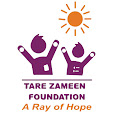Tare Zameen Foundation helps to address issues surround Sanitary Napkins
It is estimated that only 18% of women in India have access to sanitary hygiene while the rest continue to remain in the dark about the use of sanitary pads or napkins. This dismal statistic shows how much is left to be desired in bringing about a change in this crucial area.
Taboos and beliefs such as not going to the temple or not eating pickles have had an adverse effect, not only on rural women but also on those living in urban areas. Moreover, at the onset of their periods, young girls find no one in their families to talk to, as a 2014 report finds 70% of menstruating mothers consider menstruation as dirty. These practices have prevented women from discussing the issue and finding solutions for their healthcare. Instead, it has made the women more so reliant on their older, unhygienic means of using pieces of cloth, rags, and newspapers. Much of this has, in turn, led to chronic infections and poor health. Meanwhile, those women who have access to sanitary products, often do not know how to use them correctly. Some wear it for longer than the required hours and as a result, also face medical complications.
It is not only health that is affected due to this cycle of misinformation, but also the education of the girl child is negatively impacted. According to a 2014 Dasra report, 23 million girls have to drop out of school each year due to the absence of proper menstrual hygiene management facilities. Girls are often seen to leave school by the sixth or seventh class as they reach puberty around this time. These figures come in as no surprise, as schools in remote districts are often not equipped with functional toilets, let alone sanitary napkin dispensers. Workshops seeking to educate women and even men about the menstrual cycle are the need of the hour. Simultaneously, it is essential to ensure the low-cost provision of menstruation products to women who are unable to afford the expensive alternatives at the market price.
Recently under the Swach Bharat Abhiyan program, the issue of menstrual hygiene has been highlighted by the government. Skill development, construction of toilets, setting up sanitary napkin dispensers are all vital parts of this initiative. As ministers and leaders have begun recognizing that a sanitary napkin is the right of every woman, increasing importance has been given to the spread of knowledge about the issue and the availability of local sanitary pad manufacturing units, a measure taken to ensure the provision of affordable products, especially for the lesser privileged.
In this aspect, Tare Zameen Foundation has launched its Jeet Humari-2 Project, through which it donates sanitary pads to underprivileged women in numerous government schools, orphanages, and slum areas. Apart from this, the organization aims at spreading awareness about the relevant concerns by teaching girls about the menstrual cycle, as well as encouraging them to discuss the topic freely and providing clarifications on any questions on it. It had launched successful campaigns in April and May 2019, which benefited more than 480 girls in Delhi NCR. With persistent support from its volunteers and donors, the organization seeks to make a positive change in the lives of girls and women around the nation.







0 Comments